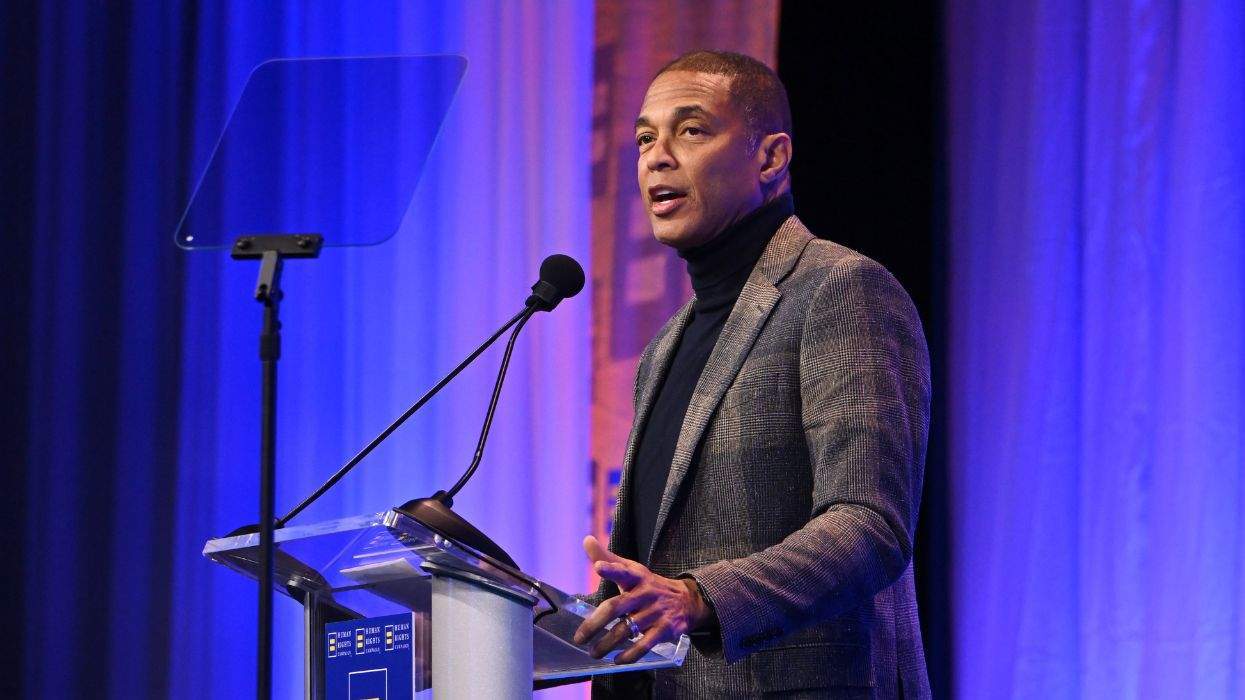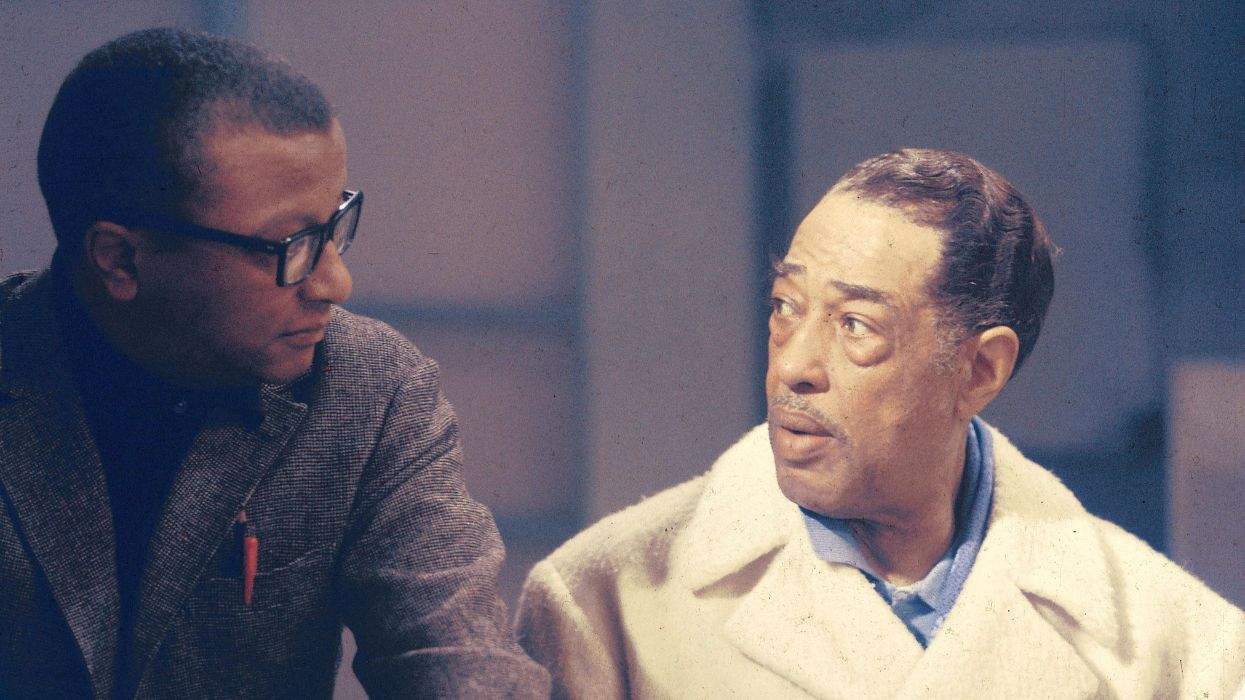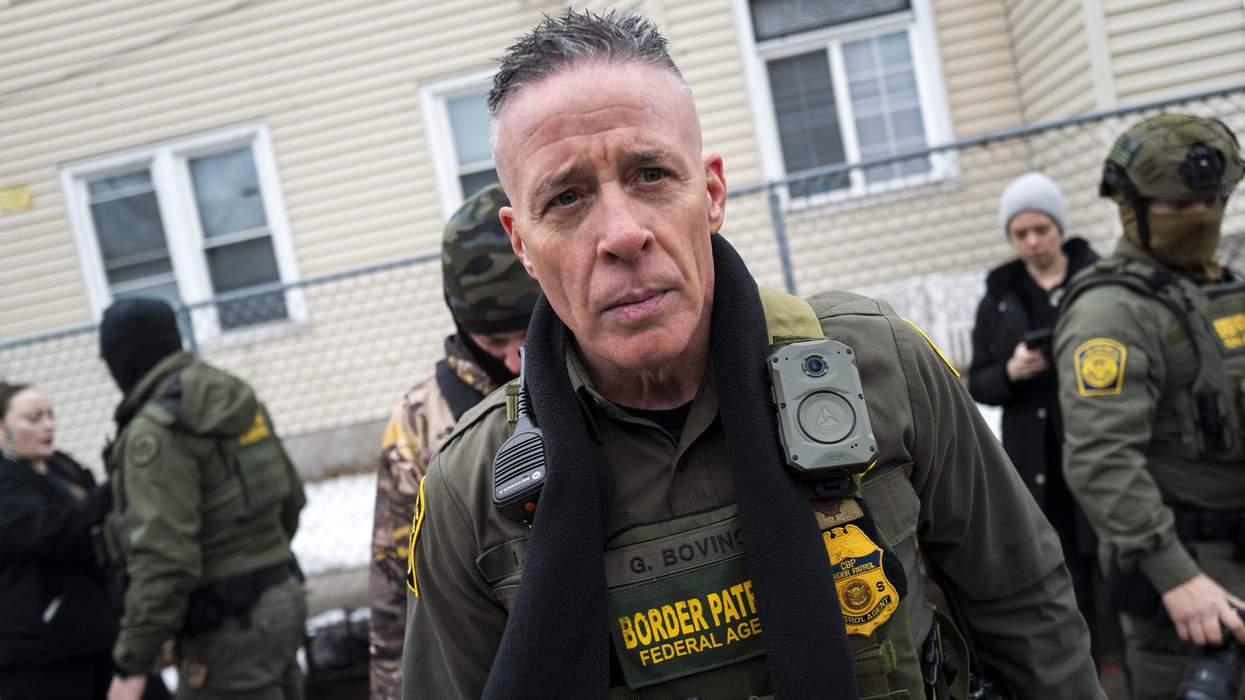In a world where the Justice Department goes out of its way to declare that LGBT people aren't covered by civil rights laws, an unhinged man in the White House tweets that he wants to ban transgender people from the military (which is currently the country's largest employer of trans people), and statehouses around the country are considering anti-trans bathroom bills and "religious freedom" legislation that legalizes discrimination against LGBT people -- it should come as no surprise that LGBT people are being targeted with threats, harassment, and violence.
The LGBT community has long borne the brunt of hate crimes. As The New York Times reported last year following the Orlando Pulse massacre, "LGBT people are twice as likely to be targeted as African-Americans, and the rate of hate crimes against them has surpassed that of crimes against Jews."
Another report, "Lesbian, Gay, Bisexual, Transgender, Queer, and HIV-Affected Hate Violence in 2016," by the National Coalition of Anti-Violence Programs, found that the majority of those killed in such hate-fuel crimes were trans women of color.
Hate crimes are massively underreported. Those targeted may fear coming forward or doubt that anyone will care (especially if they've previously been discriminated against or harassed by the police). Indeed, a 2014 report by the Bureau of Justice Statistics revealed that most hate crimes go unreported, and those that are reported are rarely classified as hate crimes by local law enforcement. That finding was further reiterated by a 2016 investigation conducted by the Associated Press, which found that thousands of police and sheriff's departments around the country hadn't reported a single hate crime between 2009 and 2014.
Of the 5,462 single-bias hate crimes reported to the FBI in 2014, almost one-fifth were because of the target's real or perceived sexual orientation. But with so many in the LGBT community dealing with intersectional biases, our risks of becoming victims are even higher.
Those who study hate crimes often report that when society at large begins to accept a minority, those who hold biases against them feel threatened and lash out. The Supreme Court ruling on marriage equality may have been the dynamite, but the Trump campaign seems to have lit the fuse: Even before the election, jurisdictions were reporting sharp increases in the number of bias based attacks.
For example, the Los Angeles Daily News reported, "Los Angeles experienced a 15 percent increase in hate crimes in 2016, along with a significant spike in attacks against the gay, lesbian, bisexual, and transgender communities, according to data analyzed by the Center for the Study of Hate and Extremism at Cal State San Bernardino."
The number of reported hate crimes in the county jumped from 200 to 230 in just one year. Brian Levin, the center's director said he was particularly disturbed by the "surge in the most violent type of attacks, which are aggravated assaults," which rose nearly 64 percent in 2016, according to Los Angeles Police Department data. Criminal threats rose 33 percent from 27 in 2015 to 36 last year.
To help get a better sense of the number and types of hate crimes, and how their frequency has changed since the election, The Advocate is partnering with other media outlets, civil rights groups, and universities on a ProPublica project called Documenting Hate.
This year The Advocate has already increased its coverage of incidents of hate, harassment, and violence targetting LGBT individuals. But to further our understanding of this critical issue we need your help. If you have been the victim of a hate crime: attacked verbally, online, or physically and it seemed motivated by your race, ethnicity, gender, sexual orientation, trans status, disability, or religion, please share your story with us by filling in the form below. You can also report if you've witnessed this occurring to someone else. Please include your contact details, so someone can follow up with you. We'll be sharing this info with our Documenting Hate partners.
We are collecting information about physical assaults, threats, vandalism, and other offenses that meet the FBI's hate crime definition: a "criminal offense against a person or property motivated in whole or in part by an offender's bias against a race, religion, disability, sexual orientation, ethnicity, gender, or gender identity."
But we also want to know about incidents motivated by hate that may not rise to the legal definition of a crime -- including online bullying, harassment, and doxxing -- the public release of your private information including addresses and trans status. (For recommendations on improving your safely check out Speak Up & Stay Safe(r): A Guide to Protecting Yourself From Online Harassment).
Together we can improve our understanding of the true magnitude of the problem and publicize the intensity of the bias directed at the LGBT community.















Charlie Kirk DID say stoning gay people was the 'perfect law' — and these other heinous quotes
These are some of his worst comments about LGBTQ+ people made by Charlie Kirk.